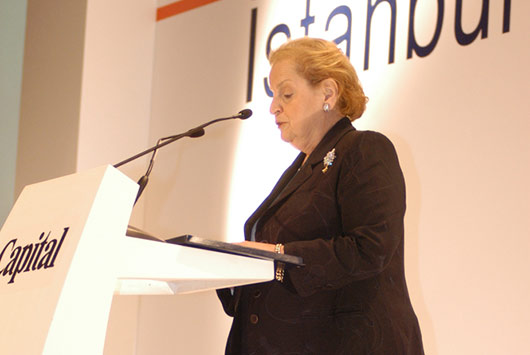
5. Know the importance of a good mentor, no matter what your political persuasion.
Democrat Madeleine Albright was the first female Secretary of State and Republican Condoleezza Rice was the second. They both were mentored by University of Denver professor Josef Korbel who is Albright’s father and was Rice’s teacher.
4. Fight for human rights.
Eleanor Roosevelt redefined the role of First Lady by becoming active in politics herself. Even after her husband left the White House, she continued to fight for human rights. She considered her work with the United Nations, helping to write the Universal Declaration of Human Rights, her greatest achievement.
6. Your childhood BFF could grow up to become your political enemy.
As children, Evelyn Matthei and Michelle Bachelet played together as children until Chile’s 1973 political coup left their families on opposite sides of the struggle. The two never saw each other again until 2013, when they shared a platform as opposing candidates in Chile’s presidential election.
Read Related: 10 Successful Women to Emulate if You Want to be Rich
7. Even if you don’t become a widely known historical figure, your actions pave the way for others.
Although she’s not a familiar name today, feminist leader Victoria Woodhull was a household name in the late 1800s. In 1870 she became the first woman to run for U.S. president on a platform including women’s suffrage, abolition of the death penalty, and worker’s rights. Her name didn’t appear on ballots in every state and votes for her weren’t even counted. Now, over a century later, a woman president may soon become a reality.
8. Know the power of channeling frustration into meaningful action.
In the early 1900s, Jovita Idar was a Texas schoolteacher frustrated by the meager resources available to her, mostly Mexican-American, students. Determined to make a difference, she began writing for her father’s newspaper La Crónica advocation for Mexican-American rights. She went on to become the first president of the League of Mexican Women.












